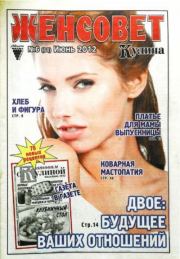Masha Gessen - How Russian Journalists in Exile Are Covering the War in Ukraine
 | Название: | How Russian Journalists in Exile Are Covering the War in Ukraine |
Автор: | Masha Gessen | |
Жанр: | Военная документалистика и аналитика | |
Изадано в серии: | неизвестно | |
Издательство: | неизвестно | |
Год издания: | 2023 | |
ISBN: | неизвестно | |
Отзывы: | Комментировать | |
Рейтинг: | ||
Поделись книгой с друзьями! Помощь сайту: донат на оплату сервера | ||
Краткое содержание книги "How Russian Journalists in Exile Are Covering the War in Ukraine"
On December 1st, TV Rain, an independent Russian television station that had been banned from Russian cable and satellite channels, was in its fifth month of broadcasting from Riga, the capital of Latvia. Most of its journalists had fled Moscow during the first week of Russia’s full-scale invasion of Ukraine, dispersing to Georgia, Armenia, Turkey, Israel, and elsewhere, only to discover in exile that, to much of the world, they represented a country waging genocidal war. Banks wouldn’t accept them as clients, landlords wouldn’t rent to them, and residents in Tbilisi and other cities painted “Russians go home” on street corners. Early on, two Baltic states were exceptions: Lithuania, which had long served as a base for Russia’s political opposition, and Latvia. Last March, the country’s foreign minister, Edgars Rinkēvičs, tweeted, “As #Russia closes independent media and introduces complete censorship, I reiterate Latvia’s readiness to host persecuted Russian journalists and help them in any way we can.”
Читаем онлайн "How Russian Journalists in Exile Are Covering the War in Ukraine". [Страница - 3]
- 1
- 2
- 3
- 4
- 5
- . . .
- последняя (6) »
The media theorist Jay Rosen has written that the central claim to authority in journalism is being there—in the place of the action, where the reader or viewer is not. “Among the prerequisites for reporting to take its course is a shared world, a weave of common assumptions, connecting reporter to recipient,” Rosen has written. “If that breaks apart so does the possibility of there being any journalism.” In the absence of physical access to either side of the war, a sense of shared community with the audience is TV Rain’s only path to journalistic credibility. But what makes TV Rain able to speak to Russians in Russia is exactly what makes it suspect outside of Russia.
Galina Timchenko, who launched Meduza in 2014, pioneered the model of reporting from exile. Meduza’s technical and editorial staff worked out of Riga, while its journalists reported from Russia. That way, even if individual journalists sometimes faced intimidation and threats, the Kremlin could not persecute the publication itself. In 2019, one of Meduza’s reporters was arrested on trumped-up drug-possession charges, but he was released after a few days, following unprecedented protests.
When the war began, Meduza had to get its journalists out of Russia. Twenty-seven people, several dogs and cats, one parrot, and one pet rabbit went to Latvia—their Riga-based colleagues picked them up at the border. Twelve more people dispersed to other countries. But Meduza has still found a way to report from Russia, using what Timchenko has termed “proxy reporting.” Meduza assigns discreet information-gathering tasks to four or five different people on the ground; writers and editors in Riga then put the story together. “All our sources are now anonymous,” Timchenko told me, “and all our journalists are now anonymous.”
The view from TV Rain’s office in Riga.
Meduza’s readers in Russia have to use virtual private networks, or V.P.N.s, to circumvent the Kremlin’s censorship. They read the publication for reporting on the war in Ukraine but also for practical information. After the draft began, in the fall, Meduza published a series of informational posts, with titles such as “How Not to End Up in the War” and “What Happens If You Fail to Report to the Recruiting Office.” “We came up with this tagline, that accurate information saves lives, but now it really does,” Timchenko told me. “We know there are millions of people in Russia who don’t like what’s going on. They are real people, and they are in pain, and we need to help them know what’s going on.”
Other journalists in exile said something similar. “Our short-term goal is to not let those who are inside and opposed to the war lose their minds,” Denis Kamalyagin, the editor of Pskovskaya Guberniya, a long-embattled independent regional newspaper, told me. Kamalyagin, who fled Russia after the police raided his office and his home, surprised me by saying that he understood the Latvians who regarded Russian journalists as a threat to their security. “Is Latvia supposed to be thrilled that we come here, bringing with us the Russian secret police, from which we are escaping?” he said. “What if they start killing us here?”
Many Russian journalists seem to have settled in central Riga, which is tiny and dense with Art Nouveau buildings. Svetlana Prokopieva, a forty-three-year-old reporter for Sever.Realii, a news project of Radio Liberty focussed on the northwest of Russia, lives in the resort town of Jurmala, steps from the calm gray expanse of the Baltic Sea. When we met, at a café in town, she told me that she had chosen to stay on the coast because she wanted to make the best of her exile. Back in Russia, police had shown up at her house in the countryside, thrown her to the floor, and handcuffed her; another group of police raided her apartment in the city of Pskov, where her husband was staying. “It was clear that this was just going to keep happening,” she said. Her husband is still in Pskov, less than two hundred miles away—the couple discusses the weather every day, Prokopieva said, “as though we were looking out the same window.”
Her mother is in Pskov, too. Prokopieva sometimes struggles to convince her that the war is actually happening; her mother watches Russian state television and tends to believe it, as do many of her elderly neighbors. “It doesn’t mean that they are monsters,” Prokopieva said. “It means that their consciousness is altered.”
Because these journalists’ outlets are blocked in Russia, tracking audience numbers is difficult. V.P.N. apps make it impossible to tell what country a reader or viewer is logging in from, much less to get an accurate count of individual visitors. But most of the audience—perhaps tens of millions of people a month—seems to be living in Russia. For TV Rain, the second-largest number of viewers is in Ukraine. “When we were bombing Odesa, we had a local journalist on the air,” Fishman said. “She told us that, afterward, she got recognized in the street.” I noticed that he said that “we” were bombing Odesa.
Timchenko told me that eight years of working in Latvia had changed her and her staff. Following a number of internal crises, Meduza instituted an ethics code, a conflict-resolution committee, and a mechanism for allowing everyone on staff to weigh in on editorial policy. The publication has a list of words that should not be used and ongoing debates about other words, such as whether Crimea should be described as having been “annexed” or “occupied.” “Such discussions seem extraneous, but they are essential,” Timchenko told me. Meduza’s first major misstep, she recalled, was the use of the word “ tyolochki ”—a rough equivalent of “chicks”—to refer to women, in a 2015 social-media post. “We had an editorial meeting that lasted four hours, and at the end realized that we are an international company and we have to apologize.”
Timchenko said that TV Rain should have put its operations on hold after leaving Moscow, and then relaunched as a Western European media company. But the need to leave Russia while continuing to cover the war had made any sort of pause an unimaginable luxury. This, in turn, had made TV Rain prone to the kind of misstep that now had it fighting for survival in Latvia.
By Monday, four days after Korostelev’s remarks, the TV Rain story was dominating Latvian television, including on TV3, a commercial channel that had been renting studio space to TV Rain. I watched that night’s broadcast of “Here and Now” with a dozen members of the staff, including Sonya Groysman, the correspondent who had been reporting on the atrocities committed by the 27th Motorized Rifle Brigade. Groysman had persuaded two more of its soldiers to talk about the torture of Ukrainian civilians. One of them, Ayaz Yakupov, spoke on camera. “They did whatever they wanted with civilians,” he said of his colleagues. “They made them hold a hand grenade with the ring removed.” In the control room, a split screen
--">- 1
- 2
- 3
- 4
- 5
- . . .
- последняя (6) »
Книги схожие с «How Russian Journalists in Exile Are Covering the War in Ukraine» по жанру, серии, автору или названию:
 |
| Лоуренс Райт - Аль-Каида Жанр: Военная документалистика и аналитика Год издания: 2010 |
 |
| Вячеслав Владимирович Меньшиков - Ржев – Сталинград. Скрытый гамбит маршала Сталина Жанр: Военная документалистика и аналитика Год издания: 2012 |
 |
| Т Есютин, Ш Юферс - Гибель "Марии" Жанр: Военная документалистика и аналитика Год издания: 1939 |



